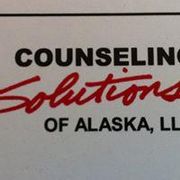A Mother's Guide to Postpartum Depression

Postpartum depression (PPD) is a mental illness that occurs during or after pregnancy. While your focus is likely on your baby, the feelings of sadness, emptiness, or emotionlessness that come from PPD can affect your behavior and physical wellbeing if left unaddressed. If you think you may have this condition, learn more below to determine if you should seek help.
What Causes PPD?
While further research is needed to determine the precise causes of PPD, previous studies suggest that changes in hormone levels play a significant role in the onset of this condition. Levels of progesterone and estrogen peak during pregnancy, then drop back down quickly in the 24-hour window after birth. Thyroid hormones can also drop postpartum, and levels that are too low could lead to symptoms of depression.
Besides physical changes, external factors can also contribute to PPD. For example, fears or doubts about being a good mother, being overwhelmed by a new baby, extreme tiredness after labor, and stress from routine changes can all be contributing factors.
What Are Some Common Symptoms?

Many new mothers feel tired, overwhelmed, doubtful, or sad after giving birth. Called “baby blues,” these feelings usually subside quickly after birth. On the other hand, symptoms of PPD persist longer and tend to be more severe.
While signs of depression often emerge within the first month after giving birth, they can also take up to a year to manifest or even develop during pregnancy. Symptoms may include frequent crying, feelings of hopelessness, thoughts of self-harm, irregular sleeping or eating patterns, difficulty focusing, withdrawal from friends or family, headaches, and body pains.
How Is PPD Treated?
Like any type of depression, PPD requires professional care, though treatment options can vary depending on your specific circumstances. For example, if your thyroid levels are too low, your doctor may prescribe medication to address the issue. In many cases, therapy is recommended to help you develop healthy coping strategies, and antidepressants are prescribed if needed.
If you think you could be experiencing PPD, you’re not alone. At Counseling Solutions Of Alaska, professional counselors and social workers can guide you toward effective management strategies to confront your depression and restore your quality of life. With convenient locations in Anchorage and Eagle River, these professionals make quality care accessible for anyone who needs it. Explore their services online, or call (907) 644-8044 to schedule an appointment.
About the Business
Have a question? Ask the experts!
Send your question

